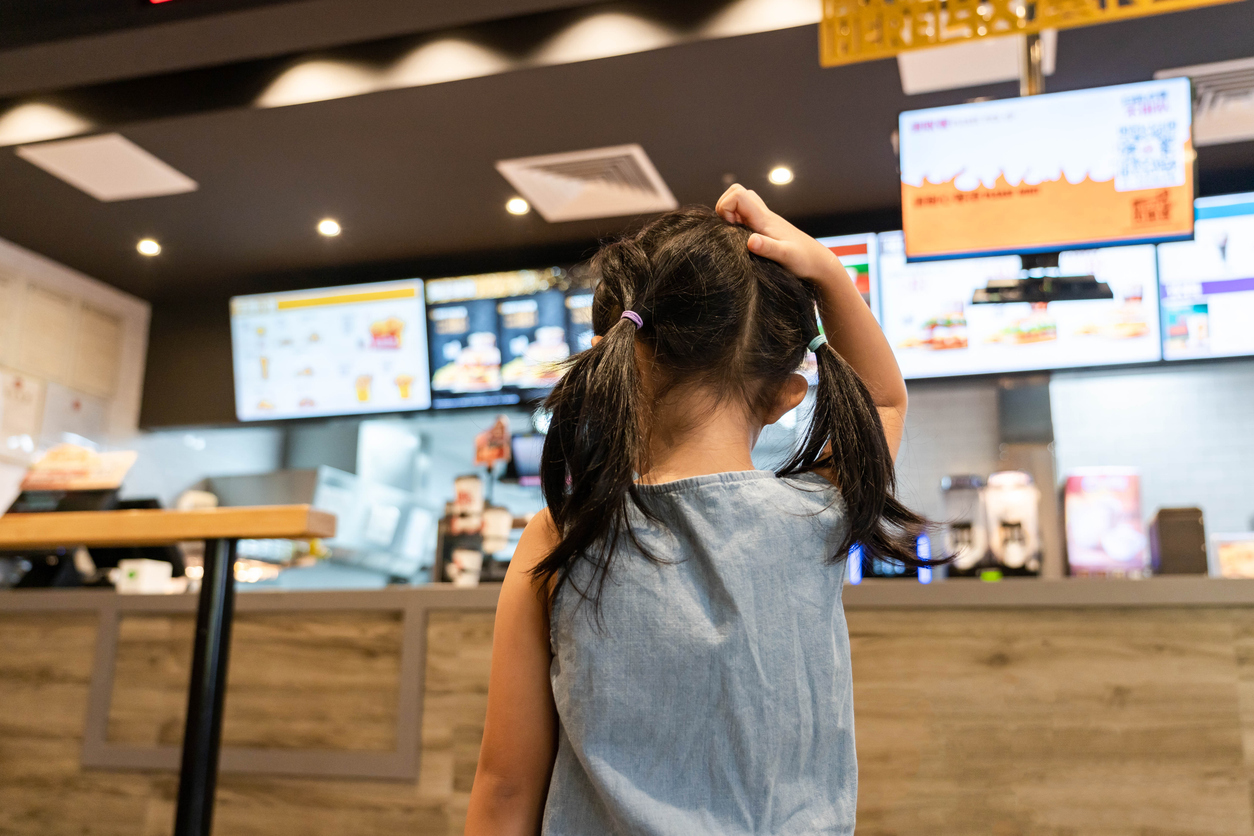In an industry known for its human touch, Voice AI has emerged as a meaningful solution for restaurants, promising to address some of the most pressing challenges while still delivering an enjoyable customer experience. As restaurant leaders navigate labor shortages and evolving customer expectations, many are asking: Is Voice AI the solution we've been waiting for, or just another tech integration?

This report cuts through the hype to provide a clear picture of Voice AI's current state and future potential in the restaurant industry. Here's what you need to know:
- Voice AI is tackling critical industry pain points: labor efficiency, customer service consistency, and streamlined operations.
- The market is growing rapidly: Voice AI in restaurants is projected to expand from $10 billion to $49 billion by 2029.
- 41% of restaurant operators in the U.S. plan to use AI to forecast sales, and 33% say they are using the technology to personalize customer experiences
- While promising, the technology isn't without its challenges. We'll explore both the successes and the hurdles.
Below is a consolidated look at the latest data and insights on Voice AI, showcasing its market growth, real-world applications, successes, and adoption challenges. At Checkmate, we're not just observers; we're actively developing Voice AI solutions that are reshaping the industry.

Whether you're considering adopting voice AI or simply want to stay informed, this report explores how this technology might fit into your operational strategy and what it could mean for your business going forward.
What’s Keeping Restaurants From Scaling Their Digital Business?
1. Labor Shortages
The restaurant industry has long struggled with labor shortages, exacerbated by fluctuating economic conditions and shifting workforce expectations. Operators face difficulties maintaining consistent service quality and managing high turnover rates. This long-standing issue was only amplified by the COVID-19 pandemic, and even now, more than three years later, brands are still feeling its impact.
2. Changing Customer Expectations
Consumers increasingly expect frictionless interactions when ordering food or dining at a restaurant. If they don’t get it, they’re ready to move on to the next brand. Meeting these expectations while managing operational costs poses a big challenge for many restaurant brands, and there’s no one-size-fits-all solution.
3. Integration Challenges
Adding new technologies to existing systems can be complex. Restaurant operators often encounter difficulties in ensuring that AI solutions work seamlessly with their point-of-sale (POS) systems, online ordering channels, and operational workflows.
The Answer? Automating more of the ordering process with Voice AI
Voice AI offers a viable remedy to the challenges faced by restaurants. It automates routine tasks, enhances customer interactions, and integrates seamlessly with existing tech stacks. Here’s how Voice AI, although a new technology, is already making a difference:
Market Growth
Voice AI technology is experiencing explosive growth. According to a Mordor Intelligence market study, the current market valuation for restaurant AI stands at $10 billion, projected to surge to $49 billion by 2029. This growth is driven by the technology's ability to address key operational and customer experience challenges.
Key Use Cases
White Castle
White Castle has been a beloved brand since the 1920s, and AI is helping the company remain relevant in the digital age. Using SoundHound AI, the brand plans to roll out Voice AI in 100 drive-thrus by the end of 2024. The technology has shown a need for employee intervention in only 5-10% of cases, indicating high efficiency. However, SoundHound’s tech only works with restaurants that already have digital menu boards and HME Nexeo.. Existing restaurateurs don’t have the investment to throw that much money into new tech, as the vast majority of franchises are one to two stores — technically existing as small businesses.
Taco Bell & Yum! Brands
Taco Bell, a leader in AI adoption, has integrated Voice AI into over 100 locations. The technology has contributed to Yum! Brands’ impressive digital sales, which approached $30 billion in 2023, with over 50% of these sales coming from digital channels. The parent company is now expanding its voice AI campaign to KFC locations in Australia.
Bojangles
Bojangles' deployment of "Bo-Linda," their proprietary Voice AI, has achieved a 95% accuracy rate in over 50 locations, with plans to expand to 200 by the end of 2024. The technology, provided by Hi Auto, has streamlined order accuracy and efficiency.
Checkers & Rally’s
Checkers & Rally’s have implemented a Spanish-language version of Voice AI through Presto, reflecting the technology’s adaptability and potential for broadening customer engagement in ever-diversifying markets.
DoorDash & Uber
Delivery giants DoorDash and Uber Eats have adopted kea.ai’s voice AI phone-based ordering. This allows customers to place orders verbally, which are then sent to delivery marketplaces, bypassing the need for app or website interactions. California Fish Grill and Papa John’s franchises have also replaced their traditional phone systems with the same software.
Growing Pains & Industry Sentiments
Challenges and Criticisms
Despite the promising benefits, the adoption of Voice AI is not without challenges:
- Integration Issues: As seen with McDonald’s, a rushed rollout and lack of a human-integrated loop can lead to complications. McDonald’s removed AI ordering from 100 locations after difficulties with its IBM partnership but is still bullish on the future of AI drive-thrus.
- Customer Skepticism: According to an Intouch Insight survey, 45% of respondents dislike the idea of Voice AI in drive-thrus, with older generations expressing more skepticism. This sentiment highlights the importance of managing customer perceptions alongside technological implementation.
- Need for updated tech/stores: Like with SoundHound, some Voice AI tech requires integration with expensive technology that can sometimes only be launched in new stores.
Positive Sentiments and Future Outlook

- Operator Enthusiasm: Slang.AI reports that 54% of operators believe AI will positively impact restaurants, with 71.6% planning to adopt AI soon. Nearly 94% recognize AI’s necessity for competitiveness.
- Customer Experience: Despite some skepticism, 61% of those who have used Voice AI report a positive experience, indicating that with proper implementation, Voice AI can enhance customer satisfaction.
Demographic differences
- Younger people typically aren’t too negative about AI at restaurants and drive-thrus. Similar to a first date, companies need to nail the first impression with young customers.
- Older generations tend to have more trouble with apps than with AI, and sometimes don’t realize they’re speaking to an AI if it “feels” human enough.
Checkmate’s Unique Value Proposition
Checkmate stands at the forefront of Voice AI innovation, offering tailored phone ordering and drive-thru solutions that address the specific needs of enterprise restaurant brands. With voice AI technology built from the ground up using large language technology (LLMs) – a type of deep learning intelligence — it’s designed to:
- Seamlessly integrate with existing POS systems and workflows. Other tech options require new equipment in new stores.
- Improve efficiency by automating routine tasks and reducing the need for human intervention. Human operations are not involved in each direct call, but operators fuel all boots-on-the-ground research and development. Checkmate’s goal is not to use humans as a crutch, but rather as a support system for 5% of cases when AI can’t fulfill a request.
- Drive sales using upsell recommendations that are personalized and complement every customer's order
- Enhance the customer experience through accurate, personalized interactions and multi-language support.
- Modify existing voice AI orders with coreference resolution after the initial order has been made.
- Reduce friction between staff and customers, improve the workflow demands employees encounter daily, and help retain staff while creating a buffer between customers and workers.

The Path Forward
As voice AI technology has evolved, restaurants have seen that it’s more than just another tech integration designed to give brands incremental efficiency gains. The ability of AI to automate day-to-day tasks while still providing a personable ordering experience for customers has caused more and more brands to begin adopting it in some form. The benefits are clear:
- Faster order fulfillment, reduced wait times, and increased throughput
- Consistent customer experiences, regardless of staff turnover or peak hours
- Streamlined operations, allowing your team to focus on high-value tasks
But the true power of Voice AI lies not just in processing orders. It's about fundamentally improving your bottom line and positioning your brand for future success.
At Checkmate, we're committed to developing AI solutions that go beyond basic functionality. Our goal is to create technology that has a measurable impact on your business from day one.
The restaurant industry is evolving fast, and the early adopters of Voice AI are already gaining a competitive edge. For brands looking to stay ahead of the curve, the time to act is now. Explore how Voice AI can transform your operations, enhance your customer experience, and boost your bottom line.





